when men and women plant trees whose shade they will never sit in."
This wisdom from the ancient Greeks seemed an apropros summation of WMI's grassroots approach to poverty alleviation. Our loans to the entrepreneurial women of rural Uganda, Kenya, and Tanzania are the seeds of change that we are planting to ensure that improved household living conditions, educational opportunities, and access to financial services are a reality for future generations of rural African families.
At WMI, we support an adaptive and collaborative brand of financial services that, when coupled with our financial literacy and business skills training, attends to our mission of providing access to credit for the under-served population of rural African women. Day in and day out, WMI carries out this mission. More than 100 rural women, each of them successful WMI loan recipients, form the backbone of WMI. They comprise our local leadership, operating and coordinating between 14 rural loan hubs. It is these women of stature and commitment who provide the local perspective necessary to avoid the failures that so often plague an outsider's efforts to alleviate global poverty. WMI's vision is shaped by the very women and communities it seeks to serve.
Ours is a learning organization, an organization committed to continuous improvement and an agile response to issues on the ground in order to ensure that write-offs are minimized and impact is maximized. WMI's success and growth is due, in no small part, to our focus on understanding and measuring the effects of our programs. In the 2016 WMI Annual Impact Survey, we found that after taking a loan to grow her business, a rural women's monthly income often doubles, and with that extra income savings increases on average by 800%. We are thrilled with the measurable impact of the loan program, but we are also dedicated to ongoing data collection and longitudinal studies, so that we may identify the ways and means by which WMI can continue to improve and expand.
2016 was a red-letter year for WMI - these are some highlights of our successes:
Loan Operations
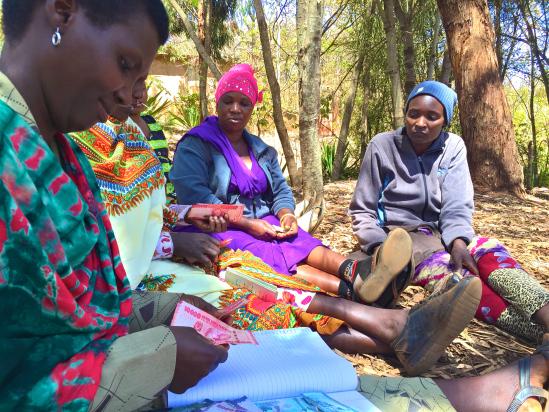
In 2016, WMI provided 7,284 loans totaling $761,589, bringing the
total value of loans issued
since 2008 to $4,121,962. This year WMI added 2,672 new borrowers, an 11% increase over 2015. This brings our total borrowers since 2008 to 10,768. When you consider that each loan positively impacts at least 10 people, including nuclear and extended family members, WMI has been able to reach
over
100,000 impoverished individuals and improve their lives.
Additional Expertise Joins WMI
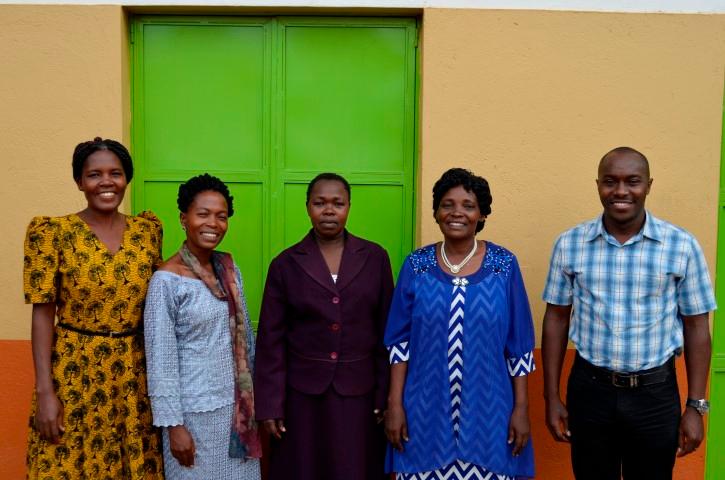 As the loan program continues to grow, so does the need to make sure it is operating at maximum efficiency and within host country guidelines. To help manage and direct this growth, WMI has sought the input of John Mark Muwangala, a seven year veteran of the Ugandan banking industry, who has joined the loan program team as a consultant. He has been instrumental in improving the loan hubs' link to the financial services industry and in helping develop a transition for WMI graduates into the established banking system.
It is also with great p
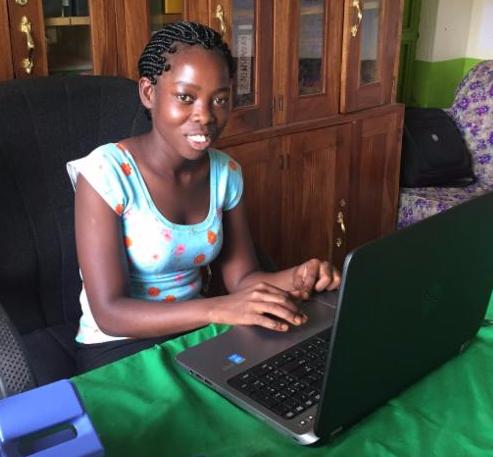 ride that we welcome Milly Walimbaw to the loan program team. Milly is a 2016 graduate from Makerere University Business School with a B.S. in finance. She is our first team member with a University degree and financial background. Milly will be working to stream line loan hub operations, facilitate communication between loan hubs and the bank
, and upgrade WMI's accounting/reporting processes. We look forward to her continued involvement in improving operations.
ride that we welcome Milly Walimbaw to the loan program team. Milly is a 2016 graduate from Makerere University Business School with a B.S. in finance. She is our first team member with a University degree and financial background. Milly will be working to stream line loan hub operations, facilitate communication between loan hubs and the bank
, and upgrade WMI's accounting/reporting processes. We look forward to her continued involvement in improving operations.
Upgraded Equipment and New Buildings
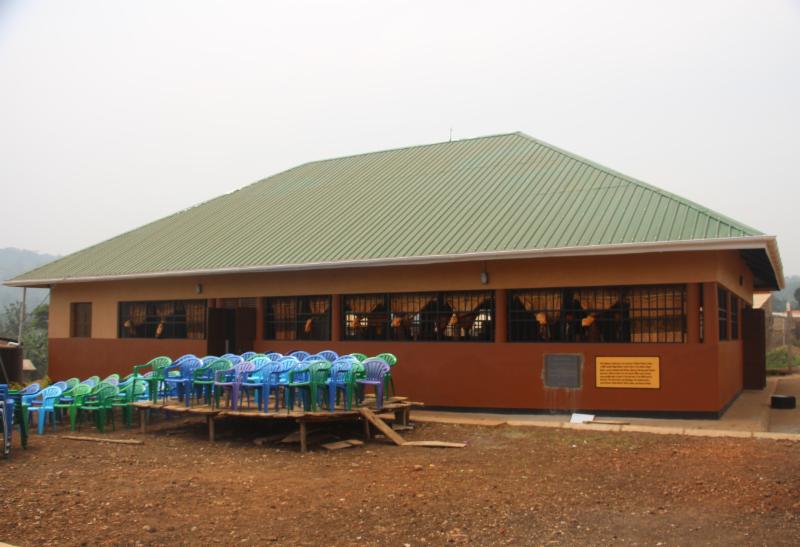 As WMI expands, investments in new equipment and buildings are necessary to keep up with the operational growth of our loan hubs. The inclusion of 8 new computers, split among the Kabale, Konokoya and Buyobo loan hubs, are lowering the communication barriers between branches and improving reporting capabilities. In 2016, WMI completed a $34,000 addition to our headquarters in Buyobo, Uganda, which includes a new kitchen, walkways, bathrooms and pavilion. Additionally, the new $19,000 loan program office in Buputo, Uganda was completed. It provides a 200-seat meeting room, along with two administrative offices for our local partner, the Matuwa Women's Group.
As WMI expands, investments in new equipment and buildings are necessary to keep up with the operational growth of our loan hubs. The inclusion of 8 new computers, split among the Kabale, Konokoya and Buyobo loan hubs, are lowering the communication barriers between branches and improving reporting capabilities. In 2016, WMI completed a $34,000 addition to our headquarters in Buyobo, Uganda, which includes a new kitchen, walkways, bathrooms and pavilion. Additionally, the new $19,000 loan program office in Buputo, Uganda was completed. It provides a 200-seat meeting room, along with two administrative offices for our local partner, the Matuwa Women's Group.
Pilot Project in Rwanda 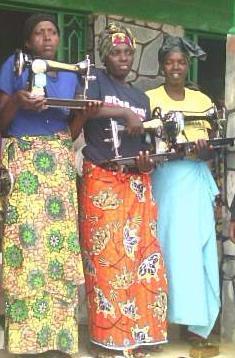
In March, WMI launched its first micro-finance project in Rwanda, providing funding to the Tuzamurane Cooperative in Mbyo village, located in the Bugesera District in Eastern Province, to finance the purchase of 17 sewing machines and training for village women.
Improvement of Rural Infrastructure
The water system in Buyobo, Uganda had been unreliable, decaying, and vulnerable to illicit syphoning for years when it reached crisis level in 2015. WMI built a coalition that committed $30,000 to the renovation of the entire water system, which was completed in August 2016. This money funded the purchase and installation of new pumps and pipes, allowing for clean water to be dependably accessed, with the addition of expanding the system to include a local primary school for the very first time.
Solar capacity was extended to thousands of households in our Lewa, Kenya and Buyobo, Uganda loan hubs through WMI's partnership with the non-profit Sun24. WMI was able to deliver 1,000 solar lamps to rural households in each village area. These rural homes received solar lights to provide power after dark so they would not be dependent on traditional carbon-based lighting options. The recipients are participating in an on-going survey to analyze the overall impact of switching to solar lighting sources. Survey results will contribute to the overall body of knowledge on how to accomplish reductions in the use of fossil fuels in rural areas.
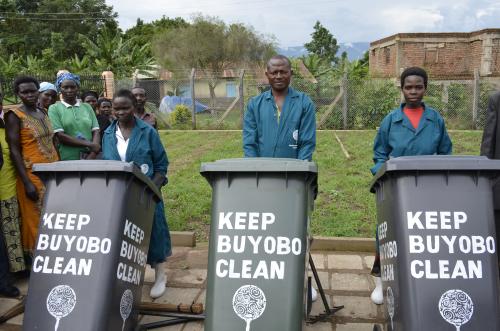 In partnership with Village Health Teams, the WMI staff in Buyobo launched a community cleanup campaign. In East Africa, there is no official system for garbage disposal - it is simply thrown on the ground (and occasionally collected for burning). Over time, this litter accumulates and contaminates the precious soils and waters that the community is so dependent upon. Without sensitization on the dangers of these practices, especially as the population grows, the problems will become acute. In an effort to improve public health and the environment, WMI devised a plan to create jobs, sensitize the community about safe garbage disposal, and Keep Buyobo Clean! Thanks to the diligence of our borrowers and dedication of our donors, the loan program now generates enough income to fund community programs such as this one. In partnership with Village Health Teams, the WMI staff in Buyobo launched a community cleanup campaign. In East Africa, there is no official system for garbage disposal - it is simply thrown on the ground (and occasionally collected for burning). Over time, this litter accumulates and contaminates the precious soils and waters that the community is so dependent upon. Without sensitization on the dangers of these practices, especially as the population grows, the problems will become acute. In an effort to improve public health and the environment, WMI devised a plan to create jobs, sensitize the community about safe garbage disposal, and Keep Buyobo Clean! Thanks to the diligence of our borrowers and dedication of our donors, the loan program now generates enough income to fund community programs such as this one.
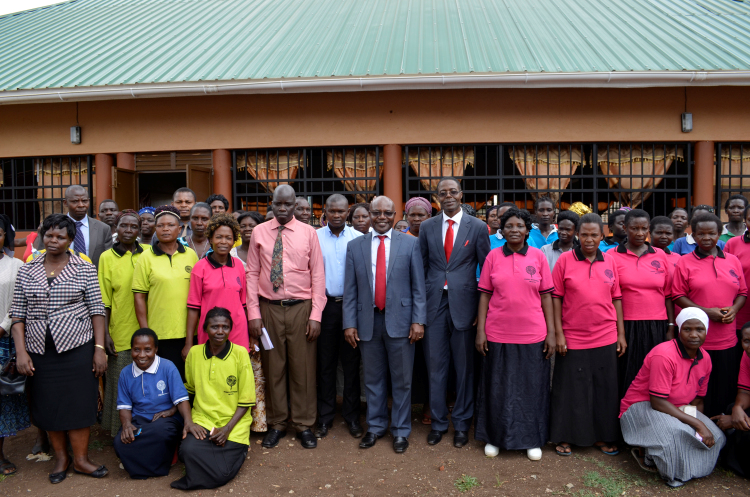
Team Work
WMI does not work alone. All of these accomplishments are a team effort. We would like to express our profound gratitude to everyone who helps make
the WMI loan program a success. This includes all the rural women who staff the loan hubs and provide local leadership, our colleagues at our banking partner, Postbank Uganda (PBU), the U.S. and Africa based college interns, our WMI board and volunteers, and all the WMI donors who share our vision to combat poverty through empowering women and giving them the skills they need to support their families.
Thank you to everyone! We look forward to 2017 and we promise to continue to strive to earn the support of all who have made WMI possible.
Happy New Year!
Gratefully,
The WMI Board of Directors
Terry Ciccotelli
Jane Erickson
Betsy Gordon
June Kyakobye
Robyn Nietert
Deborah Smith
Trix Vandervossen
|